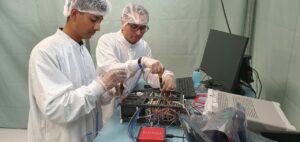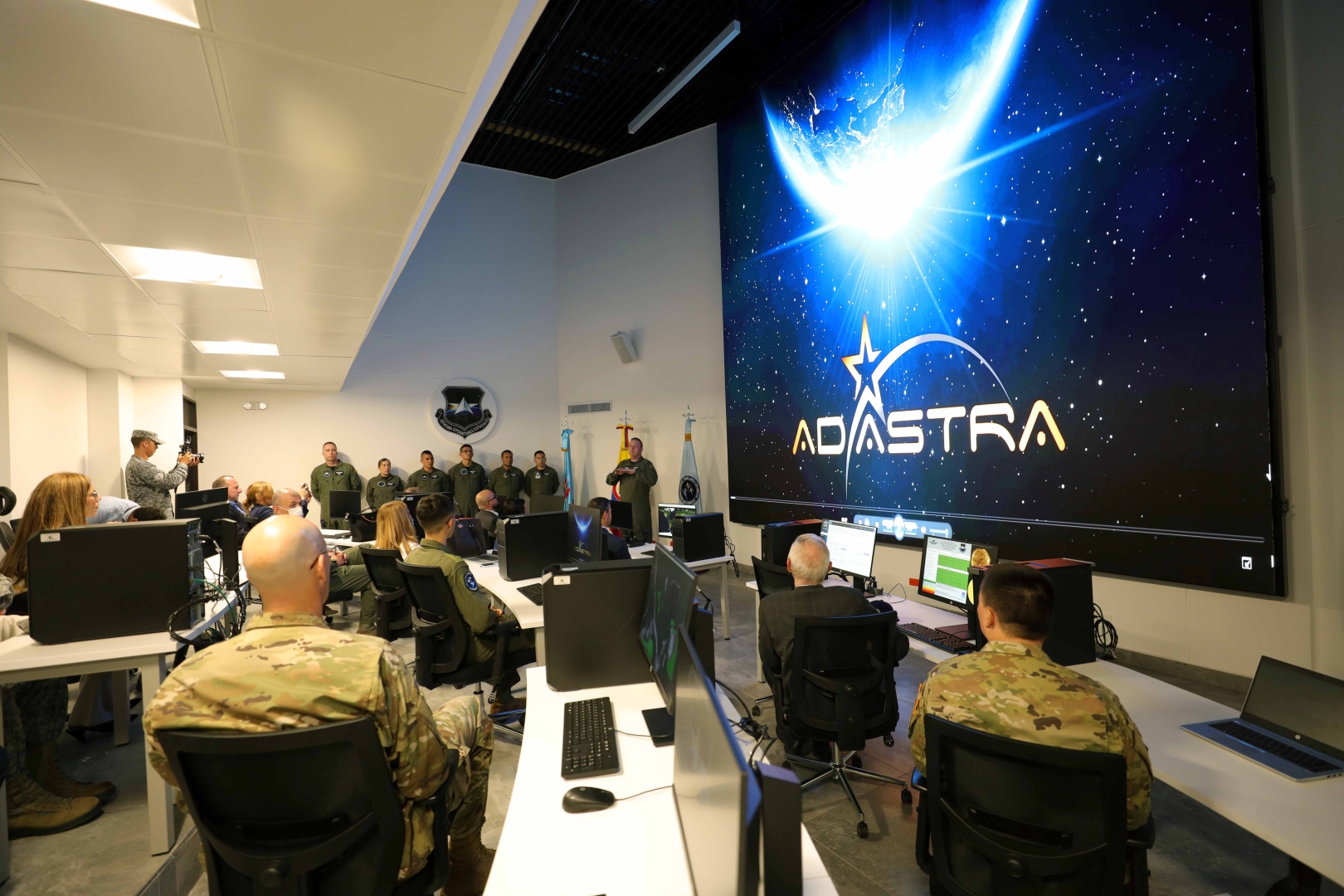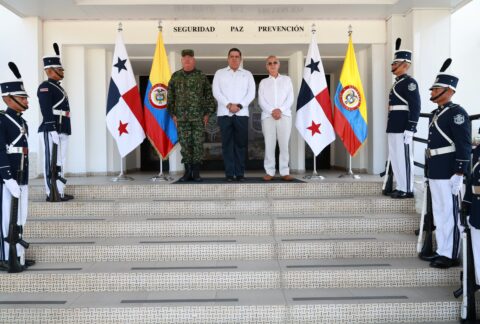Colombian authorities are determined to make inroads into space development, and have begun to reap the benefits of data collected on intelligence, cartography, climate, agriculture, and airspace and terrestrial security, among others. In the future Colombia will seek to create its own space agency.
For the time being, the Colombian Air Force (FAC) put into operation the Space Operations Center (SpOC) in the Marco Fidel Suárez Military Aviation Academy in Cali, Valle del Cauca department.
“This Aerospace Center is a strategic leap for the FAC, as it will allow us to carry out space weather analysis, orbit planning and simulation, as well as space collision calculations,” Lieutenant Colonel Guillermo Poveda, head of FAC Space Operations, told Diálogo on September 25. “In addition, we will be able to conduct management, operation, programming, and maintenance of Colombian satellites. We are now the second Center in Latin America, the first being Brazil’s Space Operations Center.”

The SpOC, inaugurated on July 28, has a design inspired by CubeSat-type satellites, and has state-of-the-art equipment for the command, control, and execution of space operations, the FAC said in a statement. In addition, this new strategic asset will facilitate the analysis of geospatial earth observation information, along with other applications, integrating data processing. Additionally, it will conduct continuous monitoring of environmental and man-made threats and natural assets in the country, the FAC said via Twitter.
The FAC, which currently has one satellite, the FACSAT-1, announced that by 2023 it expects to put into orbit a second satellite: FACSAT-2 Chiribiquete, in honor of the Chiribiquete National Natural Park, located in the Colombian Amazon region of the Caquetá and Guaviare departments. The satellite will collect information for the conservation of the country’s environment, among other data.
Space future
With these advances, the Colombian space community is looking forward and is optimistic about the possible next steps. The Colombian chapter of Washington, D.C.-based nongovernmental organization National Space Society (NSS) stresses the importance of creating the Colombian Aerospace Agency to promote drawing up a space policy and program.
“It is not only to have an agency, but at the same time to have a space policy. We need to have a space program, which are two different things,” Colonel (ret.) Raúl Gutiérrez, president of NSS Colombia told Diálogo. “The policy says the what, the what for, and why; and the program defines the how and what is going to be done. And for that, the Aerospace Agency is very much the executor.”
Space development is a cross-cutting issue for NSS Colombia, which they see as much more than a matter of rockets, satellites, or astronauts. They see it as a diagonal issue that can have a positive impact on everything from agriculture, to space law, and even art. As such, NSS Colombia warns, training human talent within the country and abroad is a must.
“The first thing Colombia has to do within its space program is to develop national earth observation satellite capabilities and, subsequently, we will have to go into reviewing the issue of telecommunications satellites,” Col. Gutiérrez said. “Within this space program, we must also train suitable human talent and offer them opportunities to work in the different space areas.”
On September 20, the FAC announced that its first crew of researchers carried out an analog mission, that is a simulation of a space mission, in a habitat with conditions similar to those experienced on the moon, at the Analog Astronaut Training Center (AATC) in Poland.
The Colombian government has also taken other steps toward the future in space. Together with the National Aeronautics and Space Administration (NASA), it signed the Artemis Accords on May 10. This document, based on the United Nations Outer Space Treaty of 1967, establishes rules of good practices and disclosure of scientific data on future explorations to the Moon and other celestial bodies.
With this entry, the FAC indicated, Colombia will have the opportunity to participate in the conduct of scientific experiments and space exploration. In addition, it became the 19th country to subscribe to the accords since its 2020 creation, being the third Latin American country to join after Mexico and Brazil.









